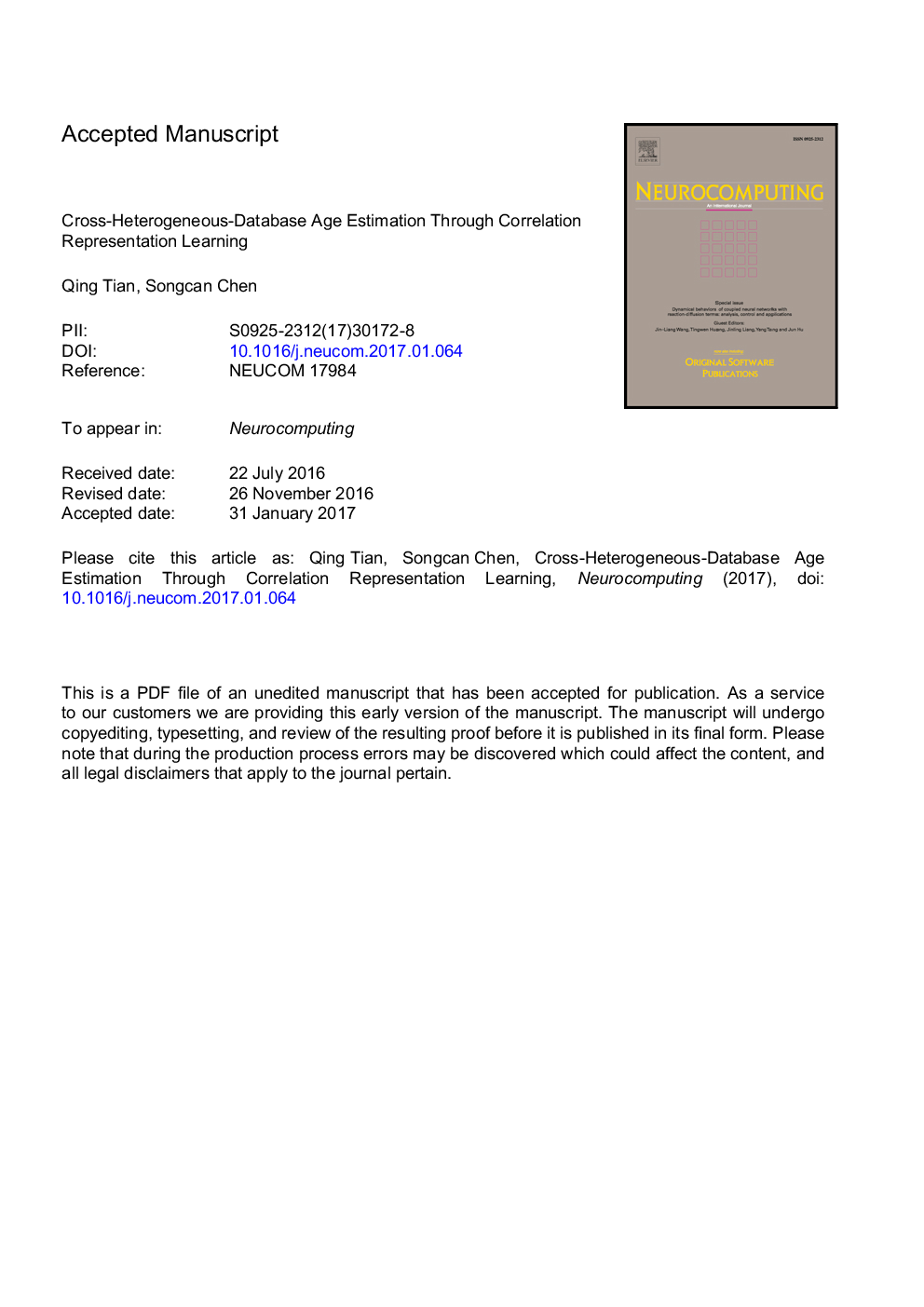| کد مقاله | کد نشریه | سال انتشار | مقاله انگلیسی | نسخه تمام متن |
|---|---|---|---|---|
| 4947627 | 1439589 | 2017 | 15 صفحه PDF | دانلود رایگان |
عنوان انگلیسی مقاله ISI
Cross-heterogeneous-database age estimation through correlation representation learning
ترجمه فارسی عنوان
تخمین سن پایه متقابل ناهمگن از طریق یادگیری نمایندگی همبستگی
دانلود مقاله + سفارش ترجمه
دانلود مقاله ISI انگلیسی
رایگان برای ایرانیان
کلمات کلیدی
ارزیابی سن، متقابل ناهمگن پایگاه داده، یادگیری فضایی منفرد فیزیکی، یادگیری نمایندگی همبستگی،
موضوعات مرتبط
مهندسی و علوم پایه
مهندسی کامپیوتر
هوش مصنوعی
چکیده انگلیسی
Human age estimation is an important research topic and has found its applications in such scenarios as commodity recommendation and security monitoring. The design of existing estimators generally follows a same pipeline, i.e., an estimator is built from a given training dataset and then evaluated on a holdout testing set from the same dataset to display its effectiveness. In doing so, an implicit assumption is that both training and testing sets should share the same age distribution and feature representation, consequently-meaning that (1) once the age of a face image to be tested is outside the age range of training set, a mis-estimation is naturally inevitable; (2) an estimator built on a specific dataset usually cannot be directly applied to make evaluations on other datasets, because the dimensions and types of their feature representations are usually different (i.e., these datasets are heterogeneous). That is, existing methods can not be directly employed to perform cross-heterogeneous-dataset age estimation. To the best of our knowledge, the age distributions of existing aging datasets are usually not consistent but complementary to each other. Motivated by such a complementarity characteristic of different datasets in age distributions, we develop a so-called correlation component manifold space learning (CCMSL) to first learn a common feature space by capturing the correlations between the heterogeneous databases, and then in the resulting space establish a single age estimator across such heterogeneous datasets through correlation representation learning (CRL). As a result, not only can the age-distribution-incompleteness of individual aging datasets be compensated, but also the discriminating ability of the estimator be reinforced. Finally, experimental results demonstrate the superiority of the proposed methods.
ناشر
Database: Elsevier - ScienceDirect (ساینس دایرکت)
Journal: Neurocomputing - Volume 238, 17 May 2017, Pages 286-295
Journal: Neurocomputing - Volume 238, 17 May 2017, Pages 286-295
نویسندگان
Qing Tian, Songcan Chen,
